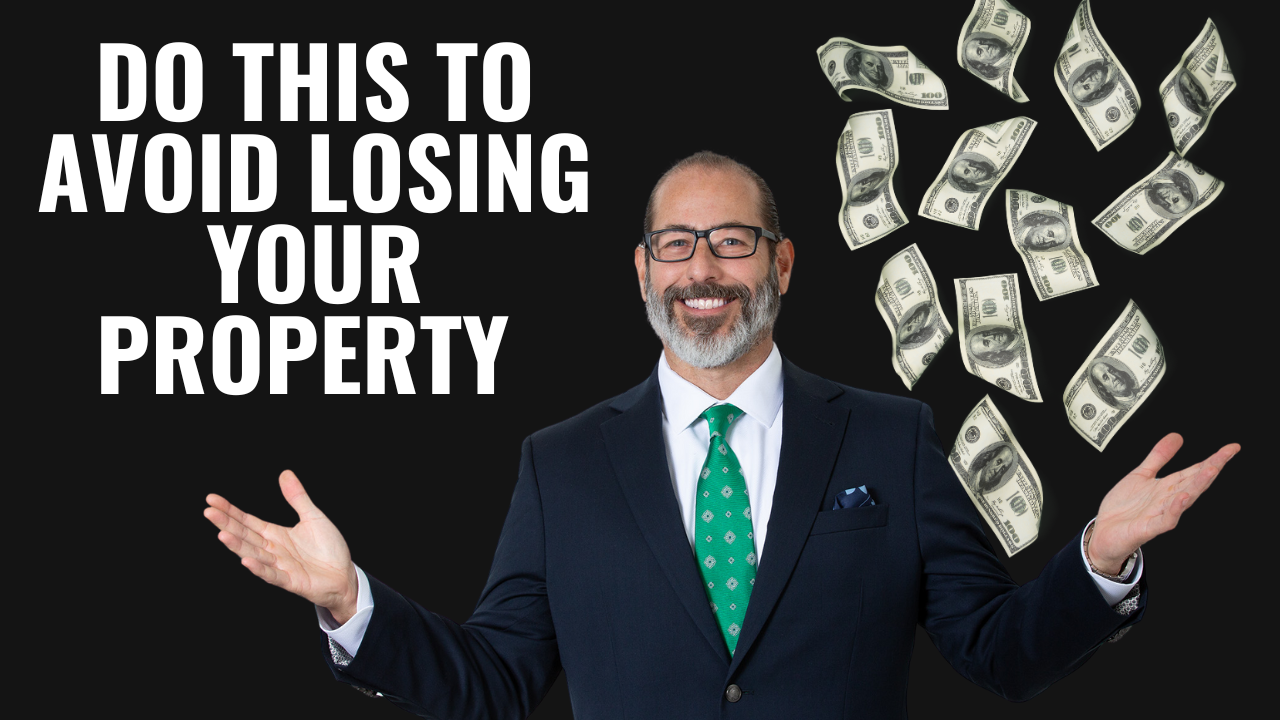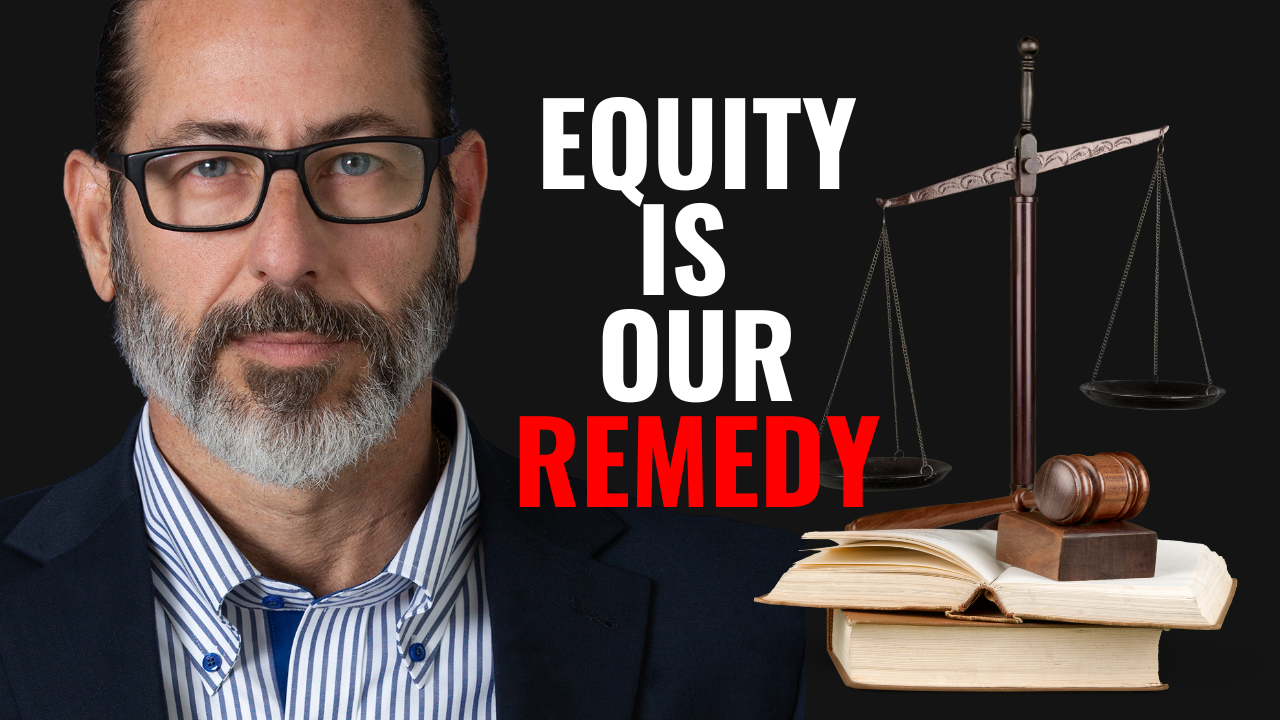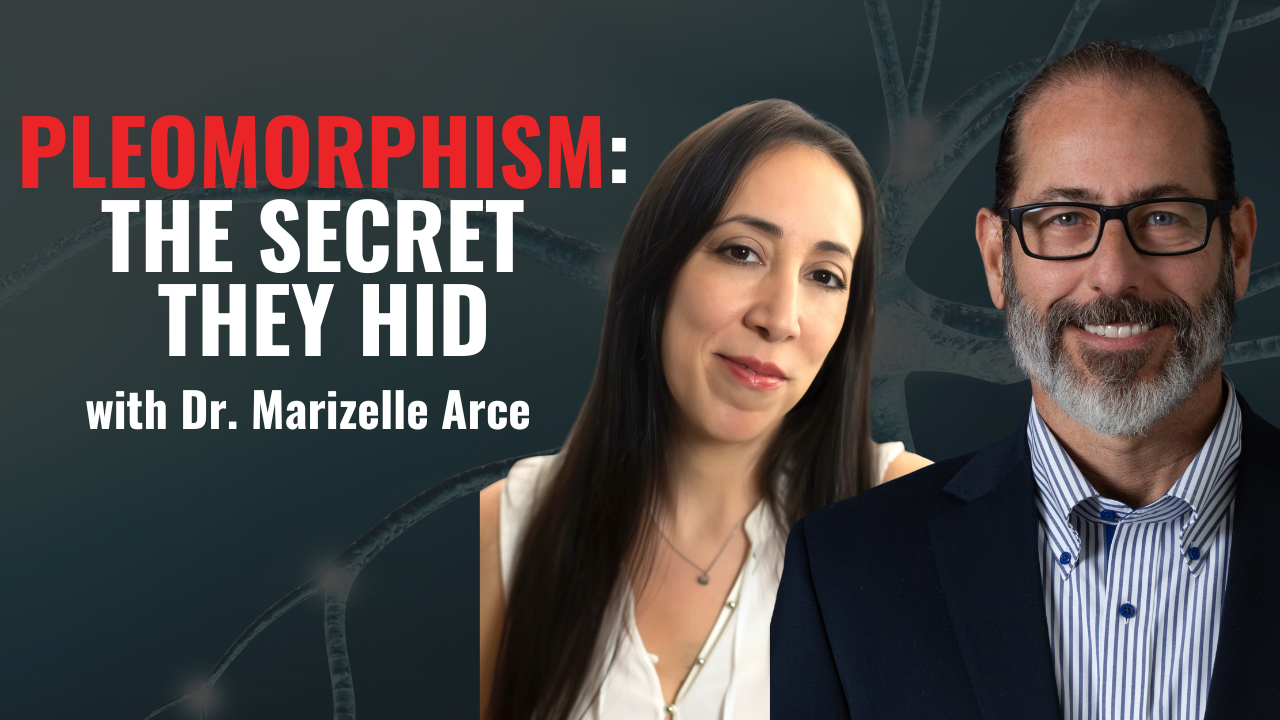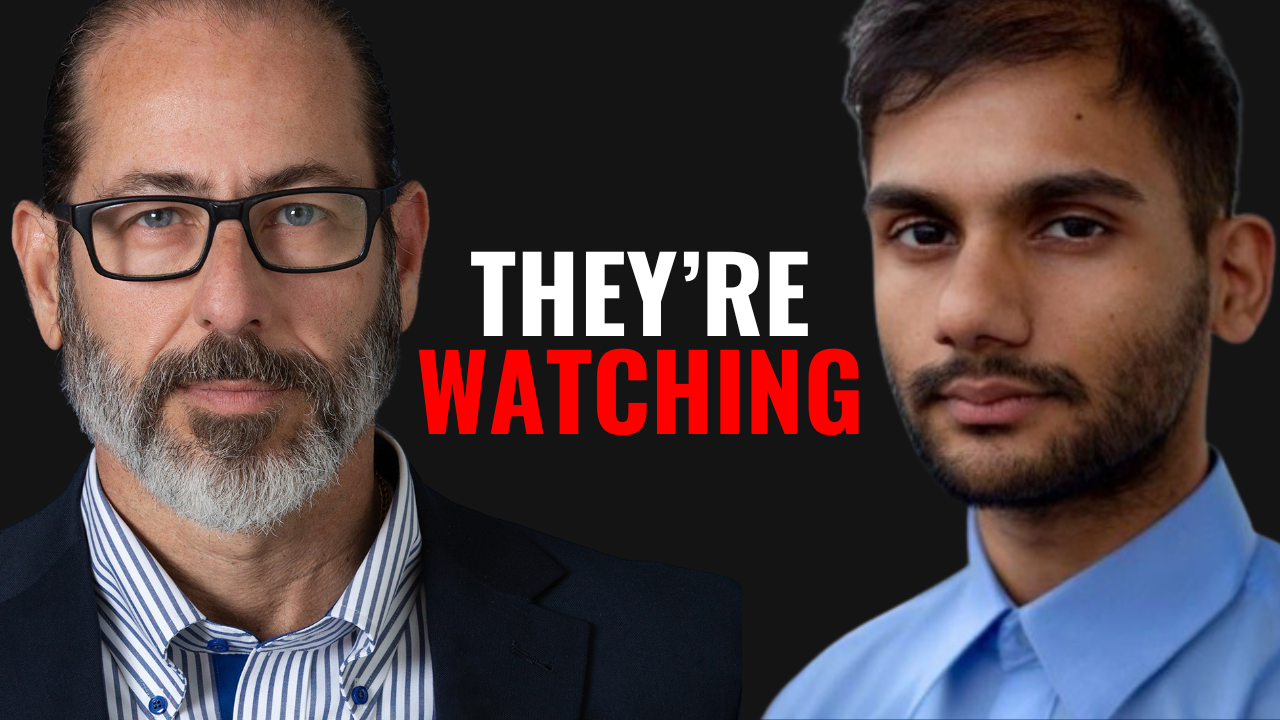Do You Really Own Your Property?
May 24, 2025
What banks, municipalities, and even HOAs don’t want you to know
You’ve been told foreclosure is the end of the road. But what if it’s just the beginning of a deeper trap?
In this episode of The True Health Report, Dr. Andy Kaufman interviews legal researcher and strategist John Jay Singleton, who reveals how property seizure often depends on misunderstood legal terms — and how to fight back.
They explore how easements, quiet title actions, land patents, and HOA bylaws can all be leveraged to defend your property, even after default or IRS liens.
John Jay’s work is controversial for a reason — it empowers you to stop outsourcing legal decisions and start protecting your ground.
Before you go further, grab this:
Brain Hijackers – 10 Neurotoxins They Don’t Want You to See
This free guide will help you detox your environment while you reclaim your rights.
Most People Don’t Actually Own Their Homes
According to John Jay, the majority of people hold title to property — not true ownership. That distinction, though subtle, is central to how foreclosure and lien enforcement work.
He explains how title documents often contain legal easements and limitations that make it easier for third parties to take the land.
How the Foreclosure System Really Works
Far from being a transparent legal process, foreclosure is often a procedural trap. Most homeowners unknowingly agree to certain terms that make “reclamation” nearly impossible — unless you know where to look.
John walks through how notices, public filings, and even IRS liens operate within loopholes.
Tools You Can Use to Defend Your Land
This episode introduces several lesser-known legal tools:
- Quiet Title Actions: Establishing clear ownership without clouds
- Easement Strategies: Using public records to restrict access or challenge foreclosure
- HOA Bylaw Review: Identifying overreach in private land governance
- Land Patents: Restoring original constitutional claims to land
Why Sovereignty Starts With Property
As Dr. Kaufman and John Jay discuss, sovereignty isn’t just about health or law — it begins with where you live. Understanding the legal basis of land ownership is foundational for any self-reliant, freedom-centered life.
Links mentioned:
https://www.law.cornell.edu/uscode/text/26/6103
https://www.findlaw.com/realestate/land-use-laws/easement-basics.html
Learn more from John Jay Singleton at Ace of Coins.
Watch This Episode If You Want To:
- Understand what foreclosure really is (and isn’t)
- Learn how to defend property rights without costly legal battles
- See the hidden agreements that compromise most landowners
- Think differently about what it means to own land in America
Listen now on your favorite platform or watch the full video above.
Also available on Rumble, Odysee, Bitchute, Spotify, Apple Podcasts, and all major podcast hosts.
Timestamps:
00:00 – What Does It Mean to Truly Own Your Land?
02:15 – Why Most Titles Don’t Mean Ownership
06:48 – The Foreclosure Trap Nobody Warns You About
11:32 – Understanding Easements, Liens, and Encumbrances
16:10 – Tools for Reclaiming Land: Quiet Title, Land Patents & More
20:30 – Property, Sovereignty, and the Bigger Picture
Full Transcript Below
Dr. Andy Kaufman: All right, welcome everyone to the True Health Report. I’m your host, Dr. Andy Kaufman, and I have a very special guest with us today. John Jay Singleton is a researcher, educator, and a legal strategist. And we’re going to be talking about a really important topic that affects just about everybody. And that is how to protect your property, your land, your homestead, your house, from things like foreclosure, eminent domain, seizure, liens, and other nefarious tactics that are sometimes used by bureaucrats and lawyers and title companies and all of these things that can be quite overwhelming. So John, thanks so much for being here and welcome to the True Health Report.
John Jay Singleton: Thank you, Dr. Kaufman. I appreciate the invite.
Dr. Kaufman: Absolutely. Well, I’ve been really impressed with your work and the way that you explain things. And we had a little private conversation before this where I learned a little bit more about the depth of your knowledge and experience. So I’m excited to share this with the audience because you really have a lot of practical experience and I know you’ve helped a lot of people.
John Jay Singleton: Yeah, thank you. It’s interesting to see how many people want to get out of the system. And what I’ve found is a lot of times people are looking for ways to exit the system, but they don’t know what the system is. And the biggest problem I see is that people are attached to the system, meaning their property is attached to the system, but their income is not. And this is why people lose their houses.
Dr. Kaufman: So you mean like, for example, like through property taxes or liens or things like that?
John Jay Singleton: Right, right. So the way property is titled is not really your property. It’s kind of like a lease. So people don’t realize they have a tenant’s interest or a leasehold interest in what they think is their land. And then because of that interest, the government can put conditions on it. They can put requirements on it. And if you don’t meet the requirements, they can just take it away. And so what I’ve found is a lot of people don’t realize that there’s a difference between title and ownership.
Dr. Kaufman: So what do you think is the first step for someone to take if they want to move out of that system, or at least protect themselves from that system?
John Jay Singleton: The first step is understanding how their property is titled. That’s really the first step. And that means going and getting the deed, getting the property records, and looking at the title report. And most of the time, they don’t know what it says. So you really need someone to explain it to you. Once you understand the encumbrances on your property, then you can start to take action.
Dr. Kaufman: Excellent. Well, I’m sure we’re going to dive into more of those actions throughout the episode. So stay tuned, everyone. This is a critical conversation if you want to truly be sovereign and own your property. Let’s get into it.
Dr. Kaufman: So John, you mentioned that most people don’t actually own their property — they just hold title to it. Can you explain a little more about what that means legally?
John Jay Singleton: Sure. When you go through a real estate transaction, what you’re getting is called equitable title. You don’t get legal title. The legal title remains with the state or the entity that originally issued the property, like the federal government or the land patent holder. And the way that they structure it, when you get the deed from the county, that deed is just giving you a right to use the land under certain conditions.
Dr. Kaufman: Interesting. So when people talk about “owning their home,” they actually don’t?
John Jay Singleton: Right. They have a use right, not true ownership. And that use right can be revoked if you don’t follow the conditions. So, if you don’t pay the taxes, they can seize the property. If you violate a code or ordinance, they can come after you. That’s why so many people lose their homes — they don’t understand what they actually have.
Dr. Kaufman: That’s really an important point. So you’re saying the legal structure of property ownership is the root of the problem.
John Jay Singleton: Absolutely. The system is set up so that you’re a tenant on the land. You’re leasing it. It might be a 99-year lease, but it’s still a lease. The government retains control, and you’re subject to their terms. It’s all in the paperwork — in the deed, the mortgage contract, and even the zoning laws.
Dr. Kaufman: So how do we get out of that structure? Is there a way to actually own property?
John Jay Singleton: There is. You have to restructure your relationship to the property. That means filing certain paperwork, removing your land from the county tax rolls, and challenging the presumptions. Some people use land patents, some use trust structures, and some do a quiet title action. But you have to be very careful and know what you’re doing, because if you don’t do it right, the courts won’t recognize it.
Dr. Kaufman: And I imagine you help people with this process?
John Jay Singleton: Yes, we guide them through it. We do the research, we look at their situation, and we recommend the best strategy. Sometimes it’s a combination of things — it really depends on how their property is structured and what their goals are.
Dr. Kaufman: That’s great. I want to talk more about quiet title actions, because I think a lot of people have never heard of that.
John Jay Singleton: Right. A quiet title action is a lawsuit that you file to establish your ownership of the property and remove any competing claims. So, if the county or another entity is claiming an interest, you can challenge that in court and get a judgment that says you’re the rightful owner.
Dr. Kaufman: And that gives you more control?
John Jay Singleton: Exactly. Once you have a quiet title judgment, it’s much harder for anyone to come in and seize your land. You’ve cleared the record. But again, it has to be done correctly. The paperwork is critical.
Dr. Kaufman: What about easements? That’s another thing I’ve heard you talk about — how easements are used strategically in property defense.
John Jay Singleton: Yeah, easements are a huge part of this. Most properties have one or more easements on the deed — utility easements, road access, water rights. But what most people don’t realize is that you can also create easements yourself. If you understand the system, you can file a public easement or use an existing one to limit the actions of government or private parties on your land.
Dr. Kaufman: That’s powerful. So you’re using the existing legal framework, but turning it to your advantage?
John Jay Singleton: Exactly. We’re not breaking any laws. We’re using their own procedures — county filings, legal notices, title research — to assert control. Most of this stuff is public record. It’s just that no one ever teaches people how to use it.
Dr. Kaufman: What’s an example of a case where this worked?
John Jay Singleton: Well, I had a client who was facing foreclosure from an HOA. We looked at the original plat map and discovered that the HOA had never properly recorded their authority over the lot. There was no easement granted to the HOA. So we filed a quiet title, challenged their jurisdiction, and won. The foreclosure was dismissed.
Dr. Kaufman: Incredible. So most people are just unaware of the paperwork trail behind their own property.
John Jay Singleton: That’s it. People think the government or banks have all this power, but most of it is based on you not knowing your rights. If you actually read the documents, you’ll see how much of it is built on presumption.
Dr. Kaufman: So how does someone get started? What’s the first action step?
John Jay Singleton: First, pull your deed and title report from the county. Get everything in writing. Then start researching the names and entities on those documents. Look at how the property was transferred, who issued the deed, and what conditions are attached. If there are easements, find out what they say. That gives you a starting point.
Dr. Kaufman: It sounds like detective work.
John Jay Singleton: That’s exactly what it is. You’re uncovering the legal trail. And once you see it, you can start taking strategic action to protect yourself.
You see the property taxes that were paid. You see the ownership transfers, the deeds of trust or the mortgages. And you look and see the reconveyance or the discharge of the lien and then a new lien and you just follow the chain of title.
You can actually have a legal case to reclaim the land. But most people are so afraid of this because they don't want to deal with the IRS, or they don't want to deal with the bank or the law or going to court. But it's not really about going to court. It’s about your knowledge. If you know where the contracts are and how to rescind them or challenge them, you can protect yourself.
Dr. Andy Kaufman: So you're saying that most people don't even realize they're agreeing to things that allow these kinds of liens and foreclosures in the first place?
John Jay Singleton: Exactly. It's all in the documents. When you sign at the closing table, you’re agreeing to every term in those documents. That includes waiving certain rights. That includes accepting terms of foreclosure, even before you miss a payment.
Most people have no idea because they never read the fine print, and they trust the system. But the system isn’t designed to protect you — it’s designed to process you.
Dr. Andy Kaufman: That’s a powerful distinction. I think this is where your work becomes really valuable — showing people how to read and challenge those assumptions.
John Jay Singleton: That’s why I created PrivacyFight. We break this stuff down. We have templates, walk-throughs, video trainings, and case studies. I’ve worked with people in all 50 states. Every time we show someone how to protect their land, they’re shocked at how simple the steps really are.
It’s not always easy — but it’s usually straightforward. Once you understand the contract and how to respond, you're no longer vulnerable to the same traps.
Dr. Andy Kaufman: This is incredible, John. I appreciate you sharing your knowledge with us today. This is definitely one of the most practical and impactful discussions we've had.
John Jay Singleton: Thanks, Andy. It’s my mission to help people take their property — and their lives — back under their control.
Dr. Andy Kaufman: That’s what sovereignty really means, right? Not just being healthy, but being free to own your body, your home, your life.
John Jay Singleton: Exactly. It’s all connected.
Dr. Andy Kaufman: You can learn more from John Jay Singleton at PrivacyFight.io. Go check it out, start reading, and don’t wait until someone knocks on your door. This is the time to get ahead of it.
Thanks for watching The True Health Report. We’ll see you next time.
Stay connected with news and updates!
Join our mailing list to receive the latest news and updates from Dr. Andrew Kaufman.




